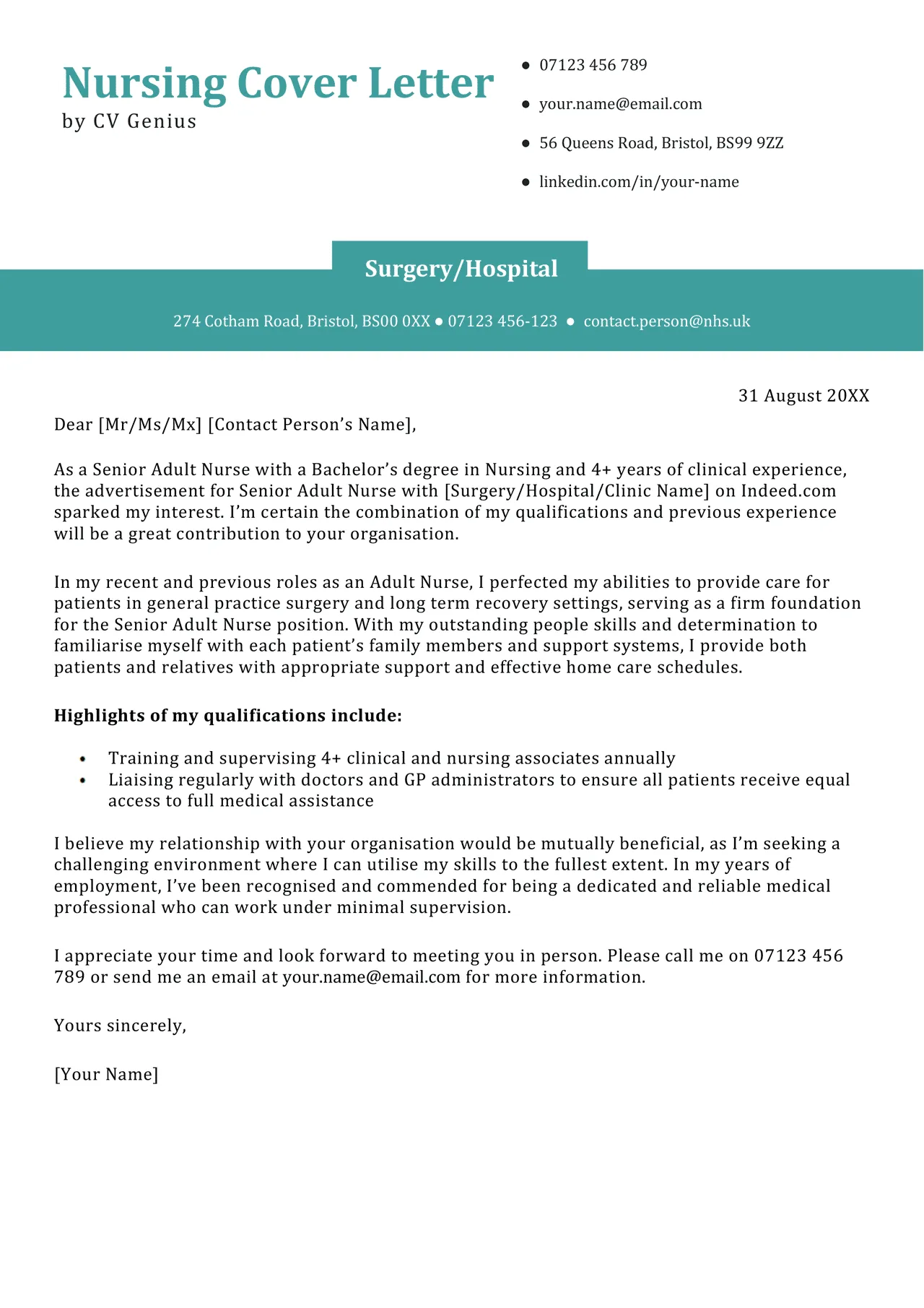What is a Cover Letter
A cover letter is a crucial document that accompanies your resume when you apply for a job. It serves as your personal introduction to a prospective employer, offering a space to highlight your qualifications and express your interest in the specific position and the company. Unlike a resume, which is a factual summary of your skills and experience, a cover letter lets you demonstrate your personality, writing abilities, and enthusiasm. A well-crafted cover letter significantly boosts your chances of landing an interview because it provides context and depth to your application, making you stand out from other candidates. View it as your opportunity to make a memorable first impression and showcase why you are the best fit for the role. Essentially, it is your personal sales pitch.
Purpose of a Cover Letter
The primary goal of a cover letter is to persuade the hiring manager to read your resume and consider you for an interview. It gives you the chance to explain why you’re interested in the specific job and the company, emphasizing how your skills and experience match their needs. The cover letter offers an opportunity to connect your background with the job requirements, showcasing how you can provide value. It also allows you to demonstrate your communication skills and personality, presenting you as more than just a list of qualifications. Ultimately, its purpose is to open doors and move you forward in the hiring process by capturing the attention of the hiring manager.
Highlighting Skills and Experience
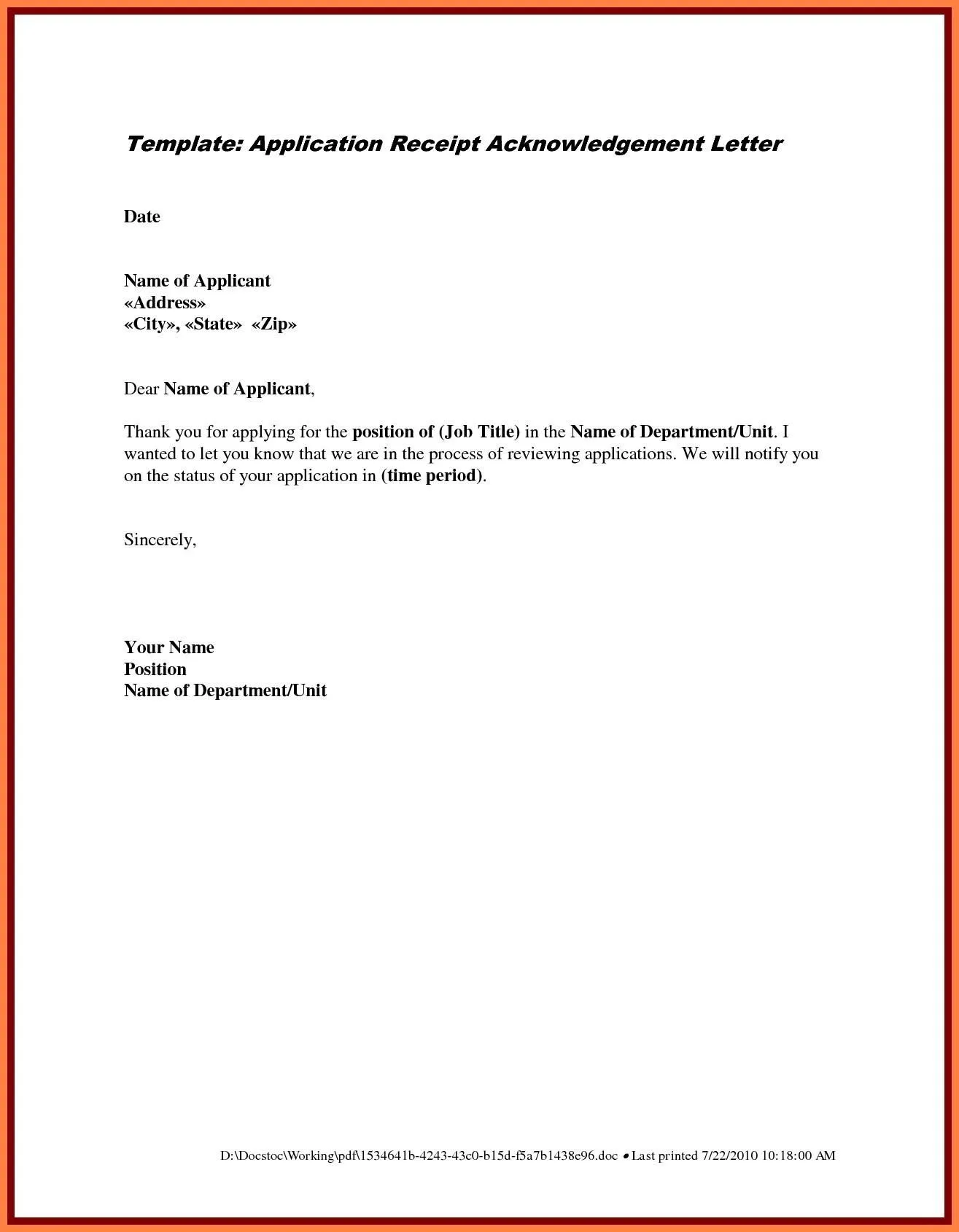
A cover letter allows you to expand on your skills and experiences in a narrative format, enabling you to tell a story about how you have used your skills to achieve results. Instead of just listing your accomplishments, the cover letter helps you demonstrate how you have applied your abilities in real-world scenarios. Choose specific examples from your work history that are relevant to the job description. Quantify your achievements whenever possible to show the impact of your work. For instance, instead of saying “Managed social media accounts,” you could state “Increased social media engagement by 30% in six months.” By giving concrete examples, you prove to the hiring manager what you can do and how you can contribute to their organization’s success. This approach helps you stand out and strengthens your candidacy.
Demonstrating Interest in the Role
Your cover letter is the perfect place to express your genuine interest in the specific role you are applying for. Avoid generic statements; show you have taken the time to understand the job requirements. Explain why the position appeals to you and how it aligns with your career goals. Mention specific responsibilities or projects within the job description that excite you and align with your experience. This demonstrates that you’re not just applying for any job, but you are particularly enthusiastic about this specific opportunity. Demonstrating your understanding of the role’s demands and expressing your eagerness to contribute will impress the hiring manager and make you more memorable.
Showing Enthusiasm for the Company
In addition to showing your interest in the role, a great cover letter highlights your enthusiasm for the company. Research the company’s mission, values, and recent achievements. Mention something specific that resonates with you and explains why you would be proud to be part of their team. This could involve their commitment to innovation, their positive company culture, or their impact on the industry. Show that you understand what makes the company unique and share their values. Demonstrating this knowledge and excitement shows that you are not just looking for a job but genuinely want to contribute to the company’s success, which sets you apart from other candidates and showcases your dedication.
Essential Components of a Cover Letter
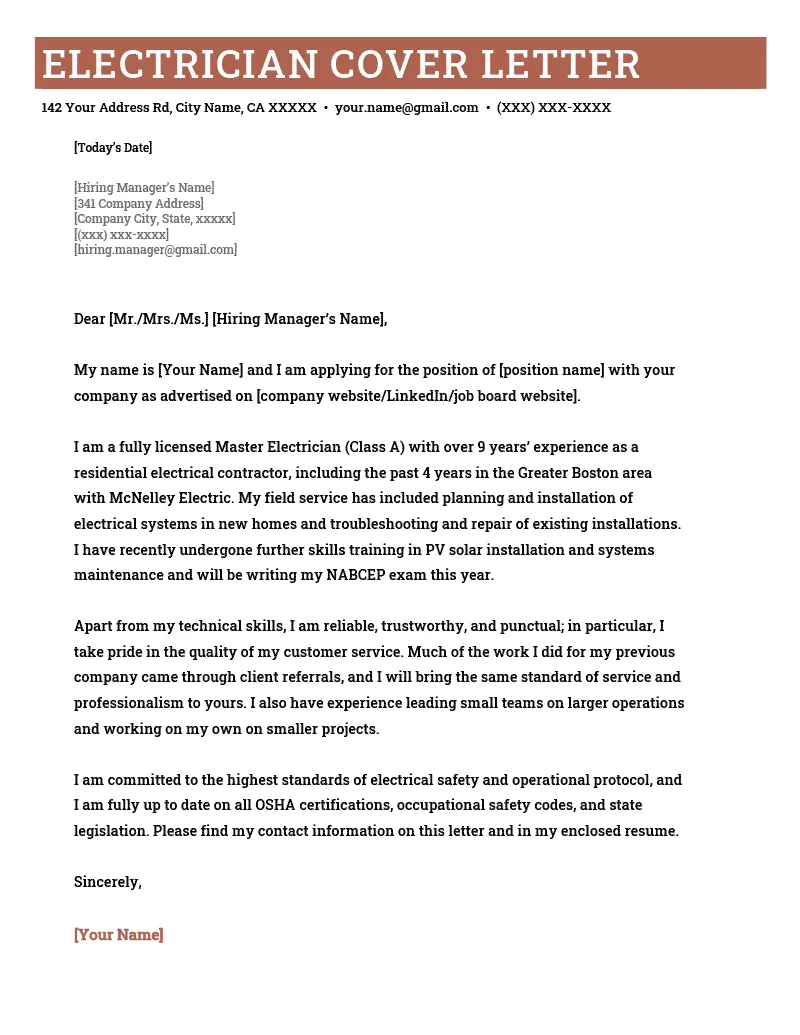
Header and Contact Information
Your cover letter should begin with a professional header that includes your contact information, such as your name, phone number, email address, and LinkedIn profile URL. Include the date and the hiring manager’s name and title if known. If you don’t know the hiring manager’s name, use a general salutation, such as “Dear Hiring Manager.” Ensure all your contact information is accurate and up-to-date so the company can easily contact you to schedule an interview. A well-formatted header sets a professional tone and ensures your information is easy to find.
Greeting the Hiring Manager
The greeting is your first point of contact with the hiring manager, so make it count. If you know the hiring manager’s name, personalize the greeting using “Dear Mr./Ms. [Last Name],” which is both appropriate and respectful. If the name is unknown, use a general greeting like “Dear Hiring Manager,” or “Dear [Company Name] Hiring Team.” Avoid casual greetings or using “To Whom It May Concern” as it can appear impersonal. A personalized greeting demonstrates that you have taken the time to find out who will read your application, which adds a touch of professionalism and shows respect.
Opening Paragraph
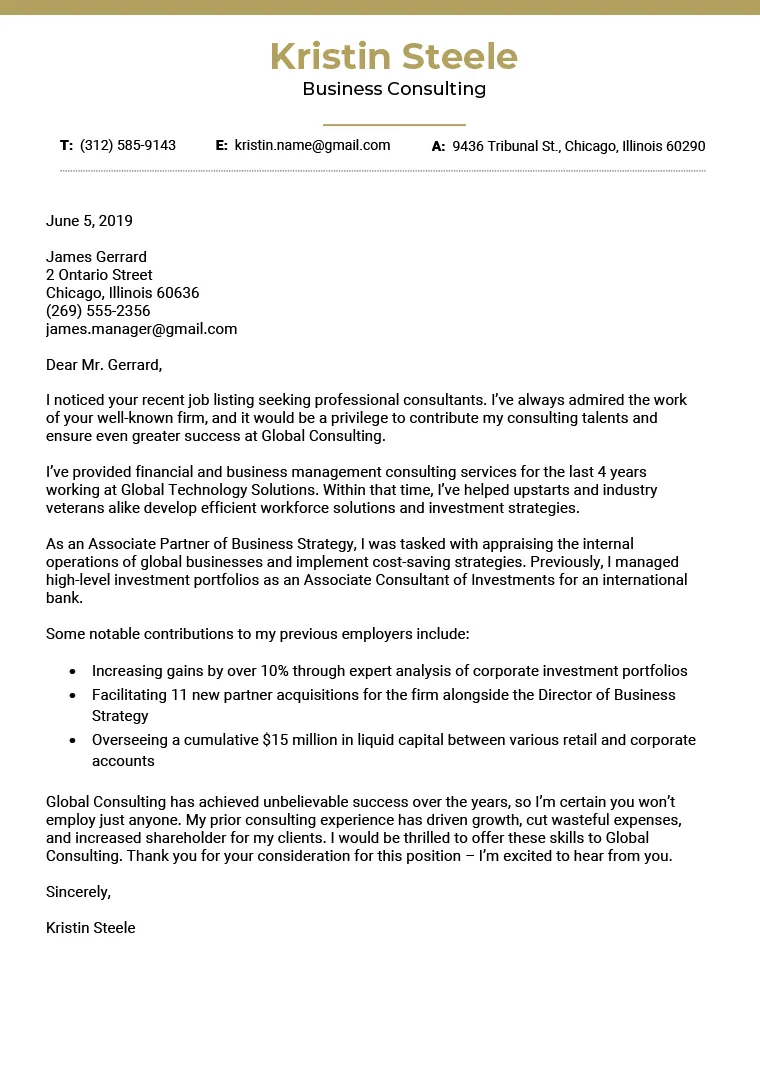
The opening paragraph is your elevator pitch, designed to capture the hiring manager’s attention immediately. Start with a strong statement that showcases your interest in the role and the company, and then briefly mention how your skills and experience match the job requirements. Clearly state the position you’re applying for. Avoid generic introductions; instead, convey your enthusiasm and highlight your key qualifications. For instance, you could start with a statement about how the company’s mission aligns with your values. Ensure your opening paragraph is concise, compelling, and encourages the reader to continue reading your letter and consider your application, keeping them engaged from the start.
Body Paragraphs
The body paragraphs are the heart of your cover letter. Here, you elaborate on your skills, experiences, and accomplishments, offering specific examples that demonstrate your value to the company. Concentrate on the key requirements outlined in the job description and highlight how your qualifications align with those needs. Use action verbs to describe your accomplishments and quantify your achievements whenever possible. For example, rather than stating you “managed projects,” you might say, “successfully managed and delivered three projects, resulting in a 15% increase in efficiency.” Each paragraph should focus on a specific skill or experience, linking it to the job requirements. This strategy shows the hiring manager exactly how you’re a good fit for the position, providing evidence of your capabilities and achievements.
Closing Paragraph
The closing paragraph should reaffirm your interest in the position and reiterate your enthusiasm for the company. Thank the hiring manager for their time and consideration, and clearly state your availability for an interview. Include a call to action, such as, “I am eager to discuss my qualifications further and am available for an interview at your earliest convenience.” Avoid generic phrases and make it evident that you are looking forward to the next step in the hiring process. Close with a professional closing, like “Sincerely” or “Best regards,” followed by your full name. This helps you leave a lasting, positive impression and emphasizes your commitment to the role.
Formatting and Tone
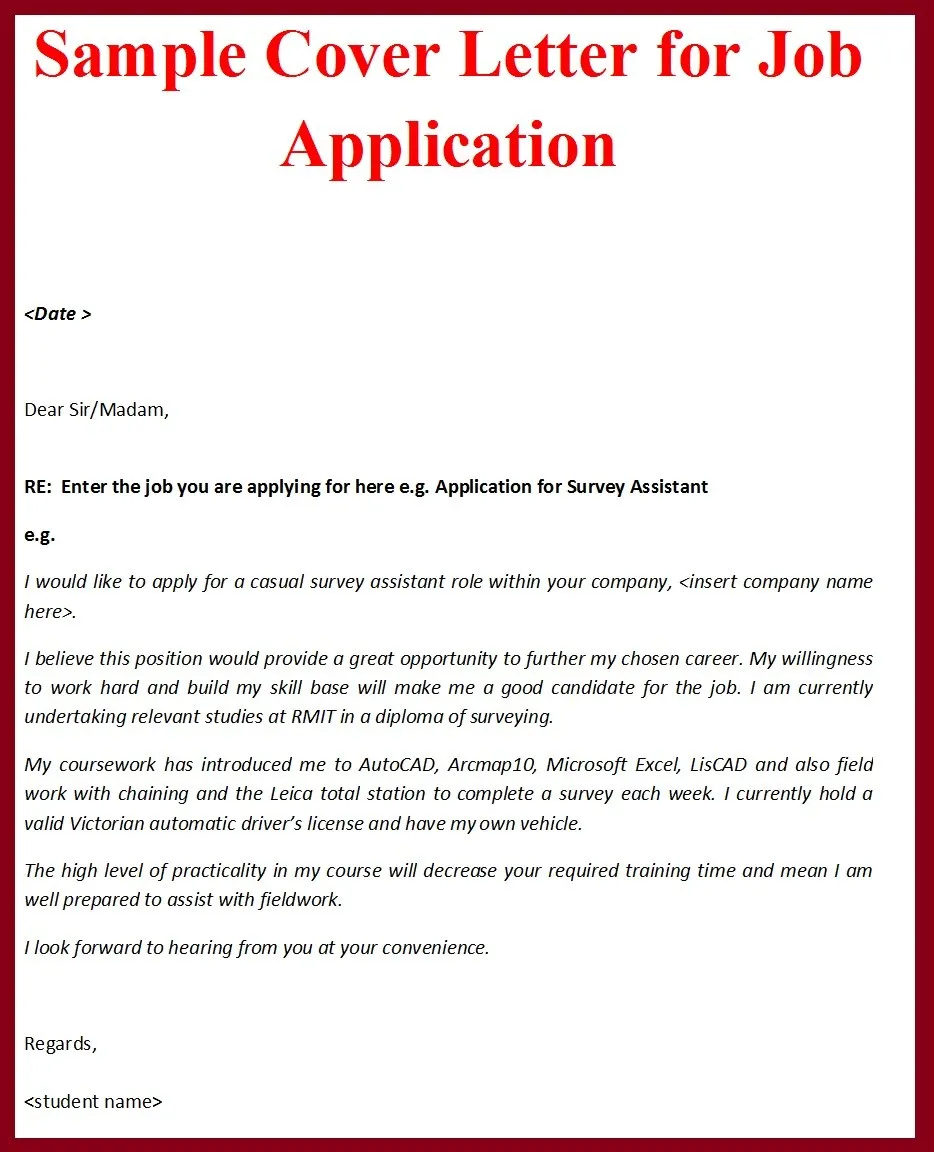
The format and tone of your cover letter are just as crucial as its content. Use a clean, professional font, such as Times New Roman, Arial, or Calibri, and keep a consistent font size. Use single-spacing within paragraphs and double-spacing between paragraphs. Aim for a concise, one-page letter. The tone should be professional, enthusiastic, and tailored to the company and role. Avoid overly casual language or jargon and proofread carefully for any grammatical errors or typos. Your cover letter shows your attention to detail and your professionalism, so ensure it’s impeccable. The right format and tone make your letter easy to read and demonstrate respect for the hiring manager, helping you to make a positive impression.
Tips for Writing a Great Cover Letter
Research the Company
Before writing, research the company. Visit their website, read their “About Us” section, and check their social media profiles. Understanding their mission, values, and recent achievements helps you tailor your cover letter to their specific needs. Look for recent news or press releases for insights into their current projects and priorities. Showcase your knowledge of the company in your cover letter by mentioning specific aspects that resonate with you. This demonstrates to the hiring manager that you have a genuine interest in the company and that you’ve taken the time to understand their business and what they value, setting you apart from those who send generic applications.
Tailor Your Letter
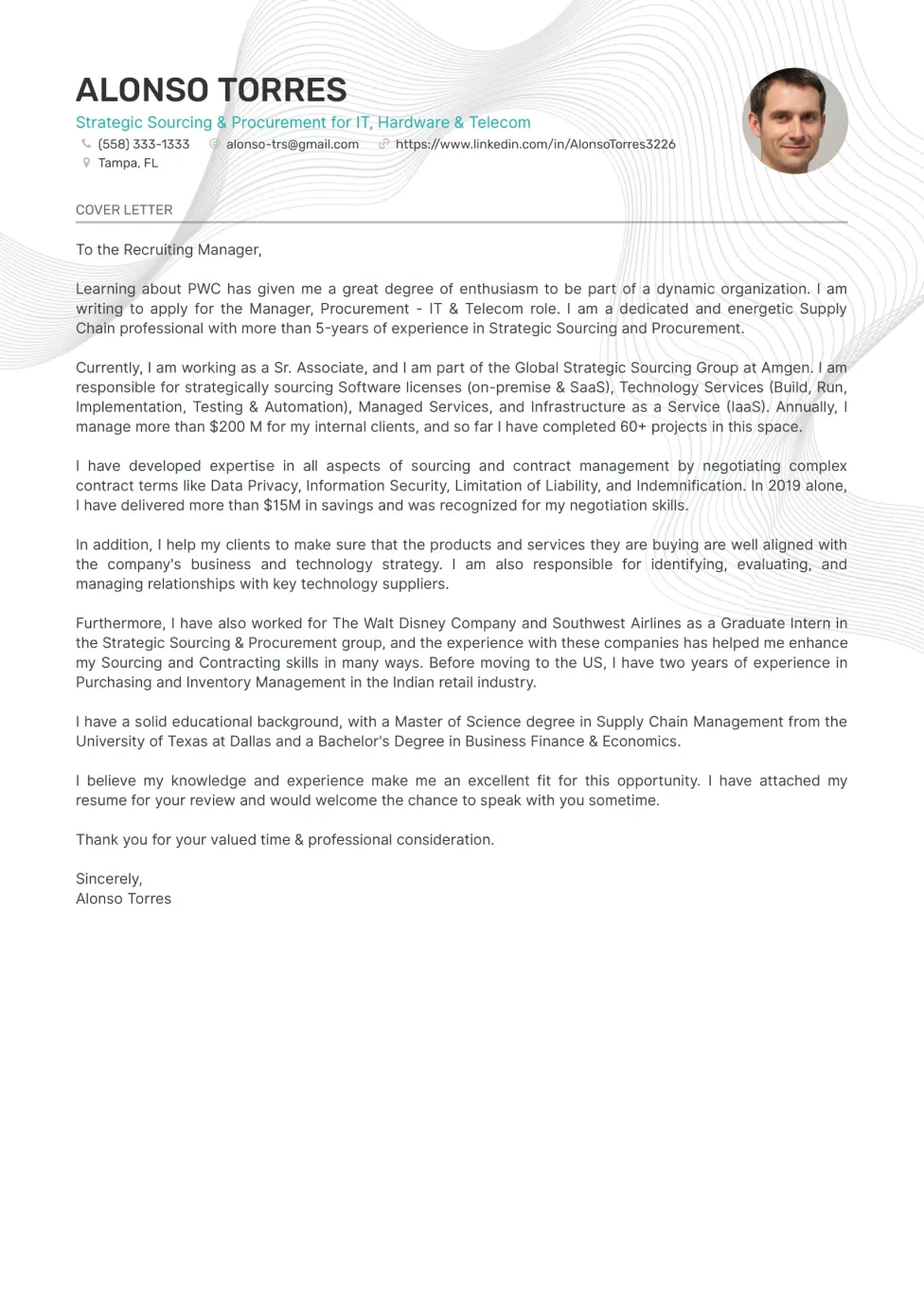
Never use a generic cover letter. Instead, tailor each letter to the specific job and company. Carefully review the job description, identifying the key requirements and qualifications the employer is seeking. Then, highlight your skills and experiences that align with those requirements. Customize your letter to show how you can meet the needs of the role and contribute to the company’s goals. Personalization shows the hiring manager that you have a strong interest in the specific opportunity, and that you’re not just sending mass applications. Tailoring your cover letter significantly increases your chances of being noticed and advancing in the hiring process, as it speaks directly to the employer’s needs.
Use Action Verbs
Use strong action verbs to describe your accomplishments and responsibilities. Action verbs make your cover letter more dynamic and engaging. Instead of passive phrases like “was responsible for,” use active verbs such as “managed,” “led,” “developed,” or “implemented.” Quantify your achievements whenever possible to offer concrete evidence of your skills. For example, rather than “improved customer service,” state “Improved customer service satisfaction scores by 20%.” Action verbs and specific examples help the hiring manager quickly grasp the impact you’ve made in previous roles. This enhances the impact of your accomplishments and shows how you can deliver results, making you sound more professional.
Proofread Carefully
Proofread your cover letter meticulously before submitting it. Errors in grammar, spelling, or punctuation can undermine your professionalism and create a negative impression. Read your letter aloud to catch awkward phrasing or typos. Use a grammar checker to identify potential errors. Consider asking a friend, family member, or career advisor to proofread it as well. An external perspective can often find mistakes you might have missed. A polished, error-free cover letter highlights your attention to detail and commitment to quality, which are essential qualities in any role. Double-checking your work guarantees you make a positive first impression, which is crucial for any application.
Cover Letter Examples
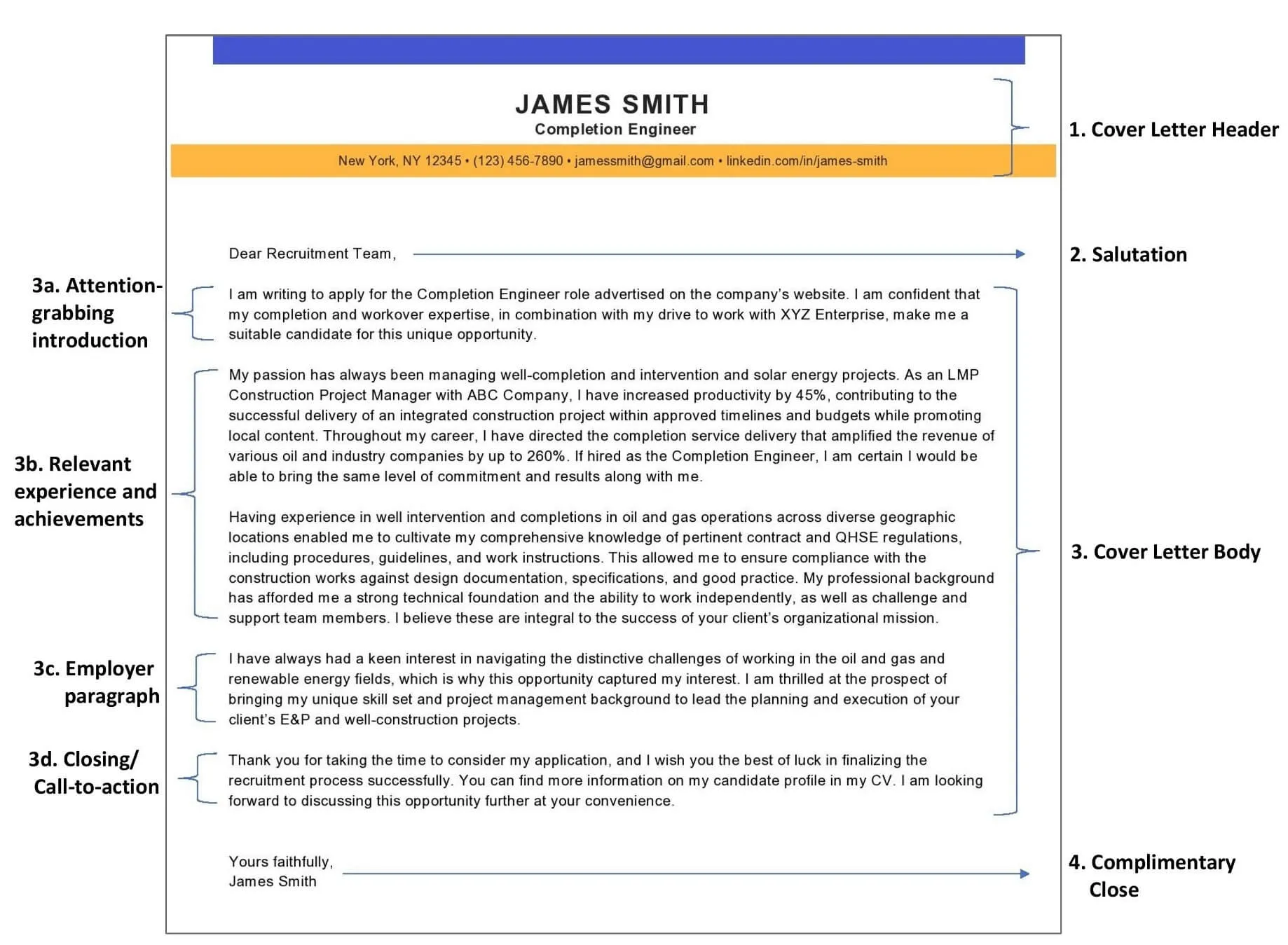
Example 1 Entry-Level Position
Dear [Hiring Manager Name], I am writing to express my interest in the Marketing Assistant position at [Company Name], as advertised on [Platform]. As a recent graduate with a Bachelor’s degree in Marketing from [University Name], I am eager to apply my skills in a dynamic and innovative environment. During my internship at [Previous Company], I assisted in developing and executing social media campaigns, resulting in a 15% increase in follower engagement. I am proficient in various marketing tools, including [List Tools], and I am confident in my ability to contribute to [Company Name]’s marketing efforts. Thank you for your time and consideration. I look forward to the possibility of discussing my qualifications further. Sincerely, [Your Name].
Example 2 Experienced Professional
Dear [Hiring Manager Name], I am writing to express my strong interest in the Senior Project Manager role at [Company Name]. With over 10 years of experience in project management, I have consistently delivered successful projects on time and within budget. In my previous role at [Previous Company], I led a team of 10 project managers, overseeing projects valued at over $5 million. I implemented Agile methodologies, resulting in a 20% improvement in project delivery efficiency. I am excited about the opportunity to apply my expertise to [Company Name] and help you achieve your strategic objectives. I am available for an interview at your convenience. Sincerely, [Your Name].
Example 3 Career Change
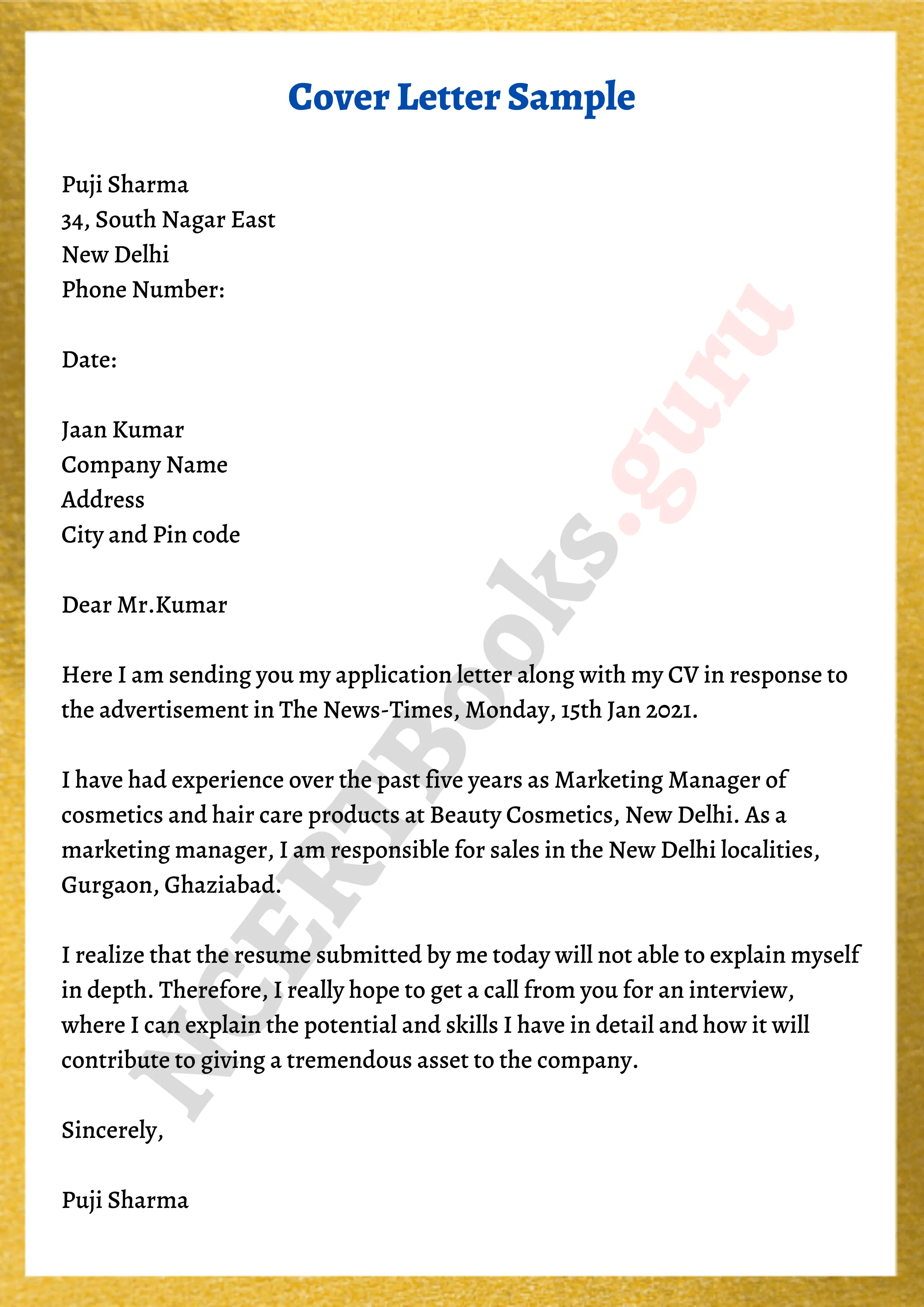
Dear [Hiring Manager Name], I am writing to apply for the Data Analyst position at [Company Name]. Although my background is in [Previous Field], I am eager to transition my skills to the field of data analysis. During my time as [Previous Role], I developed a strong analytical foundation by [Relevant experience]. I am now equipped with the skills needed to analyze large datasets. I have completed several data analysis courses and projects, including [Mention projects]. I am particularly drawn to [Company Name]’s commitment to using data to inform decision-making. Thank you for considering my application. I am available for an interview at your earliest convenience. Sincerely, [Your Name].
